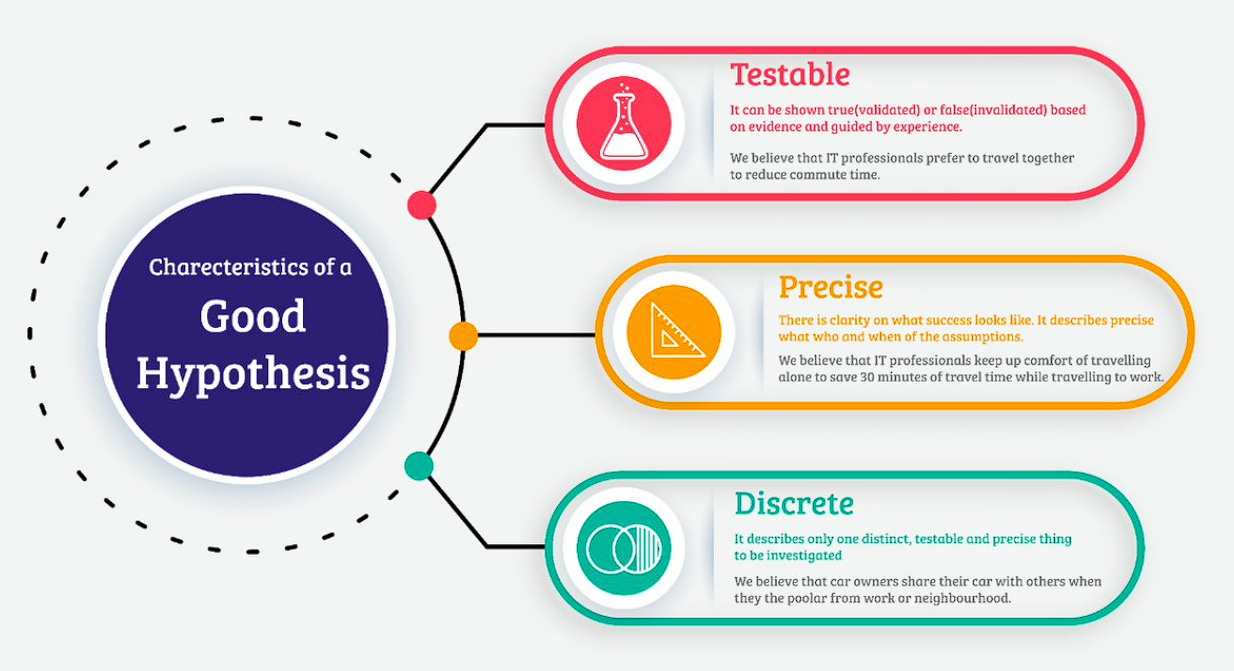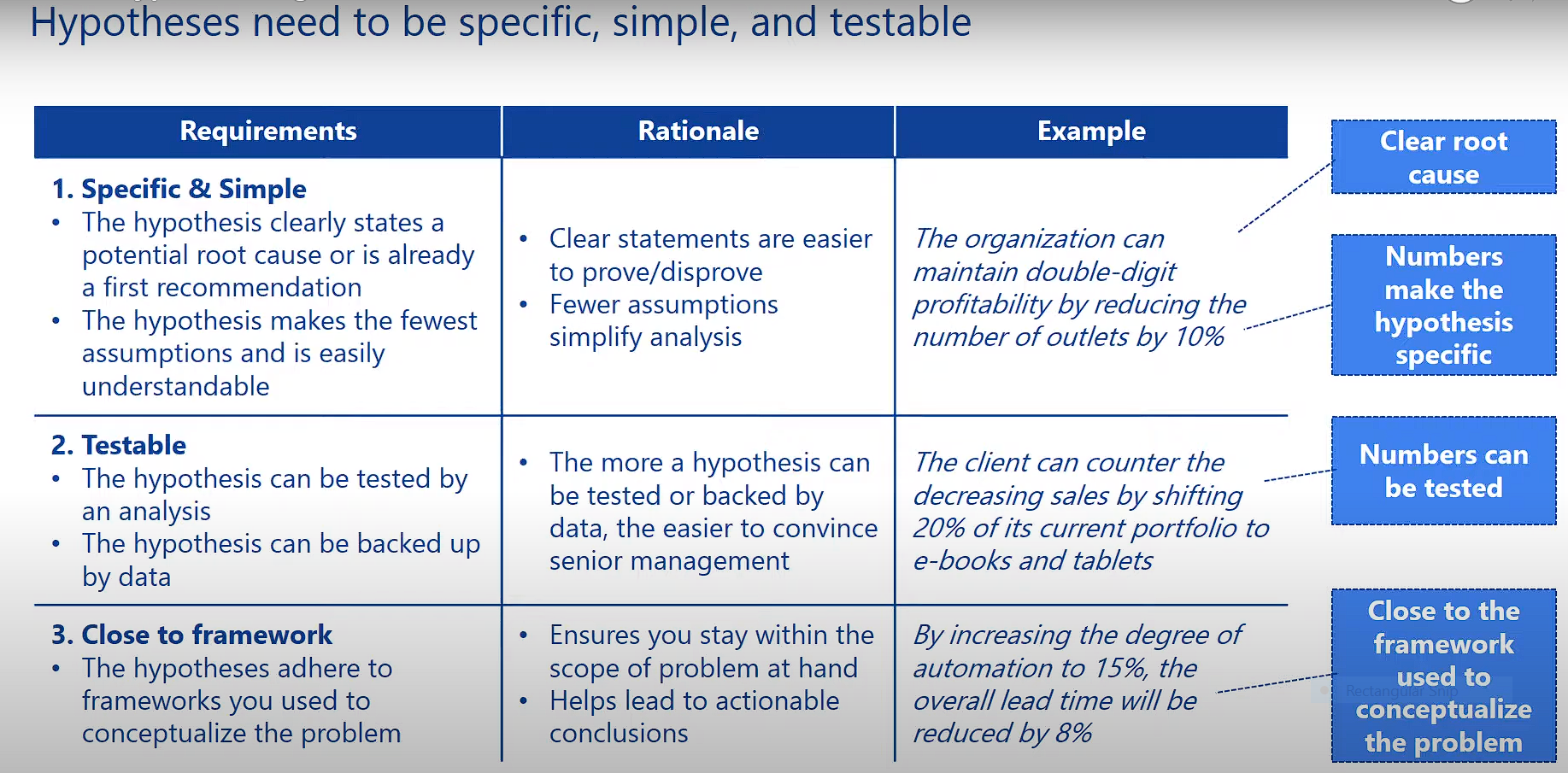2.1.2. Characteristics of a Good Hypothesis#

A good hypothesis exhibits the below characteristics:
It should be testable the hypothesis that we frame must be capable enough to be validated or backed with evidences. If it cannot be tested, then the hypothesis becomes weak and is not a valid one to go after.
Its should be precise means that the statement should be free from any ambiguity and it should not be misleading
It should be discrete means that the hypothesis should focus on only a single unique claim rather than paving way for multiple outcomes to be verified
It should be mutually exclusive meaning that the hypothesis framed should be independently verifiable and has less dependence on the outcome of other events taking place

Summarizing all of this:
A hypothesis should be clear, specific, and testable, and it should be formulated in a way that can be tested through observation or experimentation. It can be used to guide research and experimentation and to help scientists make predictions about what they expect to find.